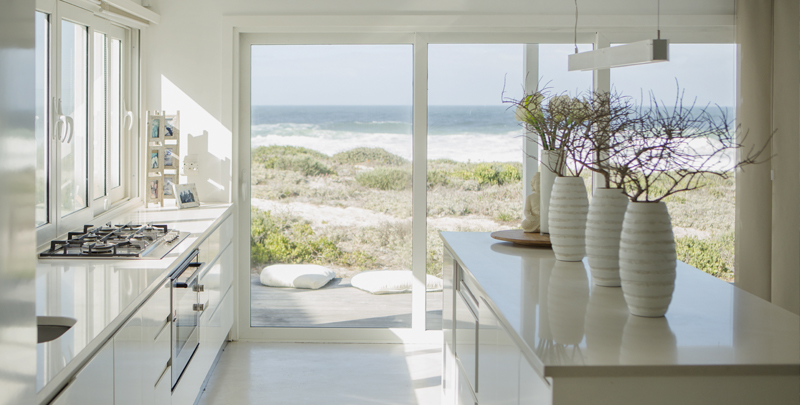The summer vacation is over, but should you buy that holiday home?
For most of us summer holidays are well and truly over. But what if you loved your last vacation spot so much, you’re considering buying a little piece of holiday paradise for yourself.
After an idyllic Summer break – by the seaside on the Bellarine or Mornington peninsulas; or in country areas like Bright and Daylesford – many holiday makers are left wanting more.
We often receive enquiries at this time of year from clients considering purchasing a holiday home.
Although it’s typically a quiet period in metropolitan real estate markets, for holiday hotspots this time of year is often the busiest.
Given this, it’s easy for would-be buyers to fall into the trap of making a hasty, excitable decision that they may later come to regret.
It’s vital to understand the major considerations would-be holiday home buyers should weigh up before deciding to take the plunge.
First and foremost is to determine whether it is an emotional or economic decision.
The investment perspective
Typically people who try to marry lifestyle with investment can become unstuck, as often it doesn’t truly fit either purpose.
If the goal is to make money, weigh up the costs, returns and risks relative to alternative uses of your investing budget – say a conventional investment property or shares. Getting in and out or property can be an expensive exercise, so if you purchase you need to make sure you can stay the distance.
Consider the investment opportunity cost. Some may consider renting out a holiday home full time as an investment property initially, with the intention of using it as a holiday home in the years to come. But as an investment, is this approach likely to achieve the same returns as other more focussed metropolitan options? Most likely not.
Does the prospective property meet the key criteria that drives growth – strong underlying land value, scarcity value, multi multifaceted demand? Unfortunately on this front, most holiday homes don’t stack up well when compared to metropolitan options.
Not being able to stay at your holiday home during peak periods will feel underwhelming. But if you’re aiming for a holiday home to generate income via short term rentals or AirBnB, that’s exactly what you’ll have to strongly consider, as that’s when market demand will be at its strongest.
We’ve also seen how regional markets can be volatile. Someone who purchased a property on the Mornington Peninsula during COVID-19’s regional property boom, is now facing a vastly different market, with country areas falling heavily in the time since.
While many properties in regional holiday areas that took off during COVID-19 are coming back to earth with a thud, not all are experiencing a correction. That’s because particular properties have utterly unique characteristics for example amazing views, beach access, ect. But trying to find a property that fits that description is difficult, as they’re often few and far between.
Holiday homes are especially vulnerable in economic downturns. They are usually the first asset to be sold off when an individual faces financial difficulty, and when several owners in a small town are in this predicament and have to sell when everyone else is being cautious, prices plummet.
The running costs are high for a holiday home as an investment. Short-term leasing is hard on a property and the rapid turnover of guests entails substantial hands-on management. Hence why property manager fees can consume up to 25 per cent more of the gross rental on short lets, compared to managing long-term tenants. Consider that repairs and maintenance can often be more time consuming and expensive in regional areas, where services are often in short supply.
Long vacancy periods are typical for holiday rentals. A regional location that is asleep six months of the year typically can’t compare to the ongoing rental demand and income that strong quality metropolitan properties provide.
The lifestyle perspective
If a holiday home is a pure lifestyle choice, will you be able to use it as often as you hope? Try to be realistic about the benefits. You are more likely to be a regular visitor if the property is less than a 90 minutes’ drive away from home – but these accessible properties are generally the most pricey.
Will visiting the same location eventually become stale? Are you happy to sacrifice other things for this home, say holidays overseas and to other parts of Australia? Or spending that money on enhancing your actual home?
Consider leasing a property in your preferred area for 12 months, so you can answer these questions objectively. That might mean trying different towns over a three to five year period to ensure it’s the right fit. That should provide solid knowledge and confidence when it comes to making a long term commitment.
Be wary of joint ownership arrangements, either with friends or extended family. How do you decide who’s going to use it during peak periods of the year? Also, circumstances can quickly change. If one partner needs to sell quickly, it can create significant issues if the other wants to remain.
Ensure discretionary financial resources are strong and secure, so a lifestyle property doesn’t become a burden that creates stress and long term money troubles.
Take home message
If you’re willing to forgo some return for lifestyle benefits, and are fortunate enough to afford to do so, then buying a holiday home can deliver wonderful moments and memories for years to come.
However, if you’re after financial returns, it is best to look to metropolitan markets to maximise wealth creating opportunities in the years ahead.

